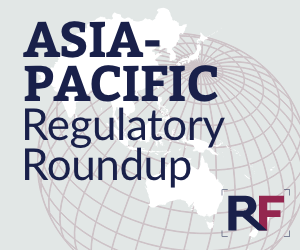Asia-Pacific Roundup: Philippine FDA shares guidelines on regulatory reliance for the conduct of clinical trials
 AsiaBiologics/ biosimilars/ vaccinesClinical TrialsMedical DevicesOceaniaPharmaceuticalsProduct LifecycleRegulatory Intelligence/Policy
AsiaBiologics/ biosimilars/ vaccinesClinical TrialsMedical DevicesOceaniaPharmaceuticalsProduct LifecycleRegulatory Intelligence/Policy AsiaBiologics/ biosimilars/ vaccinesClinical TrialsMedical DevicesOceaniaPharmaceuticalsProduct LifecycleRegulatory Intelligence/Policy
AsiaBiologics/ biosimilars/ vaccinesClinical TrialsMedical DevicesOceaniaPharmaceuticalsProduct LifecycleRegulatory Intelligence/Policy